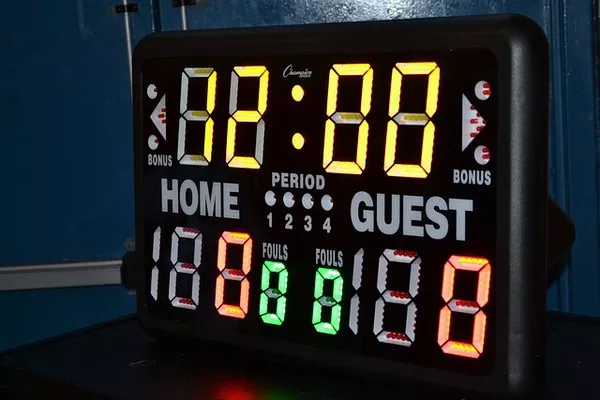In today’s rapidly advancing technological landscape, electrical instrumentation technicians play a crucial role in ensuring the accuracy, reliability, and optimal performance of various industrial processes. Combining expertise in electrical engineering and instrumentation, these highly skilled professionals are instrumental in the calibration, installation, troubleshooting, and maintenance of a wide range of electronic and electrical systems. In this article, we will explore the responsibilities, qualifications, and significance of electrical instrumentation technicians in diverse industries.
Defining the Electrical Instrumentation Technician
An electrical instrumentation technician, often referred to as an instrumentation and control technician (I&C technician), is a specialized professional responsible for managing and maintaining various control systems, instrumentation, and electrical equipment. These technicians are employed in industries such as manufacturing, oil and gas, petrochemical, power generation, pharmaceuticals, and many others.
Key Responsibilities
1. Calibration and Testing:
One of the primary responsibilities of an electrical instrumentation technician is to calibrate and test various instruments and devices, such as pressure gauges, temperature sensors, flow meters, and level indicators. Precise calibration ensures accurate readings, minimizing the risk of operational errors and enhancing the efficiency of processes.
2. Installation and Commissioning:
Electrical instrumentation technicians are involved in the installation and commissioning of complex control systems and electronic equipment. Their expertise ensures that systems are set up correctly and operate smoothly from the outset.
3. Troubleshooting and Repairs:
When issues arise with instrumentation and control systems, technicians are called upon to diagnose problems and carry out necessary repairs promptly. Their ability to troubleshoot effectively helps to minimize downtime and prevent costly disruptions.
4. Preventive Maintenance:
Implementing regular maintenance schedules is vital for avoiding unexpected breakdowns. Electrical instrumentation technicians are responsible for conducting routine inspections, identifying potential faults, and performing preventive maintenance tasks to extend the lifespan of equipment.
5. Safety Compliance:
Adherence to safety standards and protocols is paramount in industrial settings. Electrical instrumentation technicians ensure that equipment and systems are compliant with safety regulations, protecting personnel and assets from potential hazards.
Required Qualifications and Skills
To become an electrical instrumentation technician, a combination of education, technical knowledge, and practical experience is essential. Typically, the following qualifications and skills are necessary:
1. Education:
A high school diploma or equivalent is the minimum educational requirement, but most employers prefer candidates with post-secondary education, such as an associate degree or a technical diploma in electrical engineering, instrumentation, or a related field.
2. Technical Knowledge:
Proficiency in electrical systems, instrumentation principles, process control, and automation technologies is vital. This includes an understanding of PLCs (Programmable Logic Controllers), SCADA (Supervisory Control and Data Acquisition) systems, and DCS (Distributed Control Systems).
3. Troubleshooting Skills:
An ability to analyze complex problems systematically and apply logical reasoning to find effective solutions is crucial for an electrical instrumentation technician.
4. Attention to Detail:
Given the precision required in their work, technicians must exhibit a keen eye for detail to perform accurate calibrations and detect even minor issues.
5. Communication Skills:
Effective communication is essential, as electrical instrumentation technicians often collaborate with engineers, operators, and other team members to ensure seamless operation and maintenance of systems.
Significance in Industry
Electrical instrumentation technicians play a vital role in various industries, as they directly impact the efficiency, safety, and productivity of processes. Some of the key contributions of these professionals include:
Enhanced Performance: Precise calibration and maintenance of instrumentation systems lead to improved process control and product quality, enhancing overall operational performance.
Downtime Reduction: Quick diagnosis and resolution of issues minimize downtime, saving valuable time and resources for industries with continuous production processes.
Safety Assurance: By ensuring compliance with safety standards, electrical instrumentation technicians contribute significantly to maintaining a safe working environment for personnel.
Cost Efficiency: Regular preventive maintenance and early detection of faults reduce the risk of major breakdowns, ultimately saving companies from expensive repairs and replacements.
Conclusion
The role of an electrical instrumentation technician is indispensable in the modern industrial landscape. These highly skilled professionals bring expertise in electrical engineering and instrumentation, contributing to the precision and efficiency of control systems and electronic equipment. By calibrating, installing, troubleshooting, and maintaining various instruments and devices, electrical instrumentation technicians help industries achieve optimal performance and ensure safety and compliance. Their continued dedication to excellence plays a crucial role in shaping the success of diverse sectors, making them invaluable assets to the world of technology and manufacturing.

